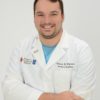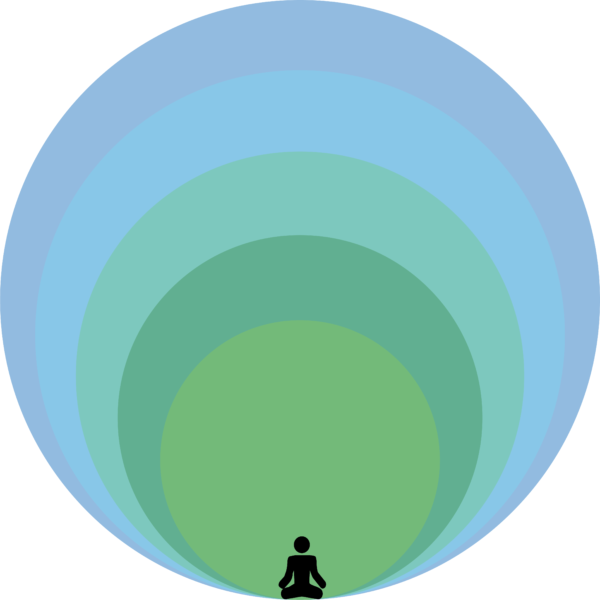 Ashten Duncan, MPH, CPH (11 Posts)
Ashten Duncan, MPH, CPH (11 Posts)Columnist, Medical Student Editor and Former Managing Editor (2017-2018)
OU-TU School of Community Medicine
Ashten Duncan is a third-year medical student at the OU-TU School of Community Medicine located in Tulsa, Oklahoma. A 2018-2019 Albert Schweitzer Fellow, he recently received his Master of Public Health (MPH) with an interdisciplinary focus from the University of Oklahoma Hudson College of Public Health. Ashten attended the University of Oklahoma for his undergraduate program, completing a Bachelor of Science (BS) in Microbiology and minors in Chemistry and French. An aspiring family physician, Ashten is currently on a National Health Service Corps scholarship. His research interests include hope theory, burnout in medical education, and positive psychology in vulnerable populations. Ashten is passionate about creative writing and what it represents. He has written pieces that have been published on KevinMD.com and in-Training.org and in Blood and Thunder and The Practical Playbook. Ashten is currently serving as Associate Author for the upcoming edition of First Aid for the USMLE Step 1.
The Lived Experience
As medical students, we sometimes lose sight of our purpose for going into medicine and feel that we are exerting ourselves excessively with little feedback from our environment. It is important that we remember that, while we are living through the experiences that come with our training, our future patients are also living through their own experiences. The focus of this column is to examine topics in positive psychology, lifestyle medicine, public health and other areas and reflect on how these topics relate to medical students, physicians and patients alike.
Current evidence suggests that much of human health is influenced more significantly by contextual factors like the social determinants of health than the direct receipt of health care. This relatively new understanding has challenged the notion of “physicianhood” and what it means to improve the health of entire populations and communities. With the influx of issues that the pandemic has brought with it, this new model for being a highly effective physician has become even more important.
Now that I am a little older and deep into my medical education, I realize how well Moby Dick elucidates the values of resilience, interconnectedness and self-renewal in medicine. In fact, there is one “character” that epitomizes the lessons we as health care providers can learn from Melville’s work: Ishmael.
What does it mean to lead a meaningful or purposeful life? One common feature that appears in many cultures is the pursuit and attainment of happiness throughout life. Recent research has unearthed predominant patterns in happiness, and consequently, two major perspectives have emerged: hedonia and eudaimonia.
My eyes ran across the same paragraph for the fifth — or maybe even sixth — time in the span of 15 minutes. Though I was giving my undivided attention to the paragraph, I could not move past it; I was at a complete loss for how to convey my next point.
I gritted my teeth as I stretched my pinky finger across the fretboard of my acoustic guitar, reaching for the last note in a D-sharp chord. My unconditioned hand was cramping from the fourth chord progression that I was trying to learn, and after straining a little bit more, I huffed in exasperation and slammed my tutorial book closed.
Drawing from this discussion of humility, one can see that we are not so different from our patients, which may seem obvious but is too often not embraced. We are all limited; that is the natural order of things.
As I drive to class most days, I turn on the radio to one of my favorite stations and listen to music while I wade through unremitting traffic. The station is great for those who enjoy rock music, and I often find myself absorbed in a newer or older song that resonates with me on different levels.
Soon, / There / Will be / A true cure.
I strode down hallways, winding ‘round to meet / A sailor old and take to him his meal. / A gentle bounce in every step on beat, / This home to many always builds my zeal.
It has become more and more evident with time that the health care delivery system in the United States is riddled with issues, which have led to many disagreements about policy because there is no clear and universally acceptable solution to our problems.
Hepatic failure claimed him mentally, / And colored yellow both his eyes so wide / As too his being stained corporally.
 Ashten Duncan, MPH, CPH (11 Posts)
Ashten Duncan, MPH, CPH (11 Posts)Columnist, Medical Student Editor and Former Managing Editor (2017-2018)
OU-TU School of Community Medicine
Ashten Duncan is a third-year medical student at the OU-TU School of Community Medicine located in Tulsa, Oklahoma. A 2018-2019 Albert Schweitzer Fellow, he recently received his Master of Public Health (MPH) with an interdisciplinary focus from the University of Oklahoma Hudson College of Public Health. Ashten attended the University of Oklahoma for his undergraduate program, completing a Bachelor of Science (BS) in Microbiology and minors in Chemistry and French. An aspiring family physician, Ashten is currently on a National Health Service Corps scholarship. His research interests include hope theory, burnout in medical education, and positive psychology in vulnerable populations. Ashten is passionate about creative writing and what it represents. He has written pieces that have been published on KevinMD.com and in-Training.org and in Blood and Thunder and The Practical Playbook. Ashten is currently serving as Associate Author for the upcoming edition of First Aid for the USMLE Step 1.
The Lived Experience
As medical students, we sometimes lose sight of our purpose for going into medicine and feel that we are exerting ourselves excessively with little feedback from our environment. It is important that we remember that, while we are living through the experiences that come with our training, our future patients are also living through their own experiences. The focus of this column is to examine topics in positive psychology, lifestyle medicine, public health and other areas and reflect on how these topics relate to medical students, physicians and patients alike.

